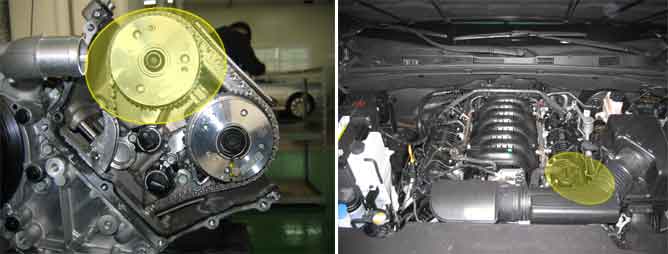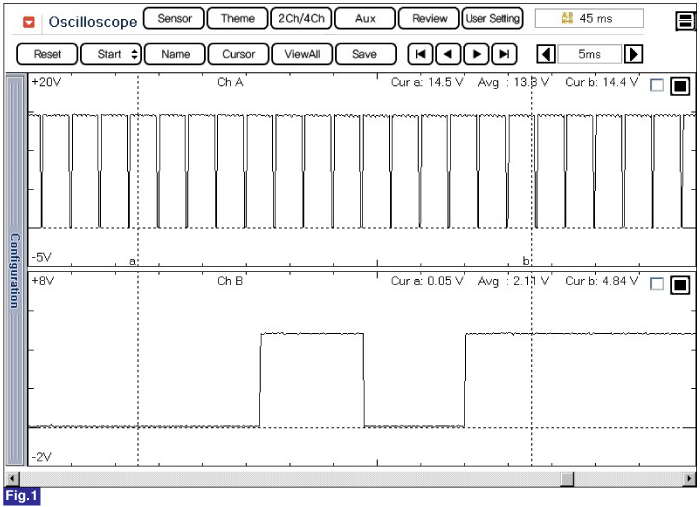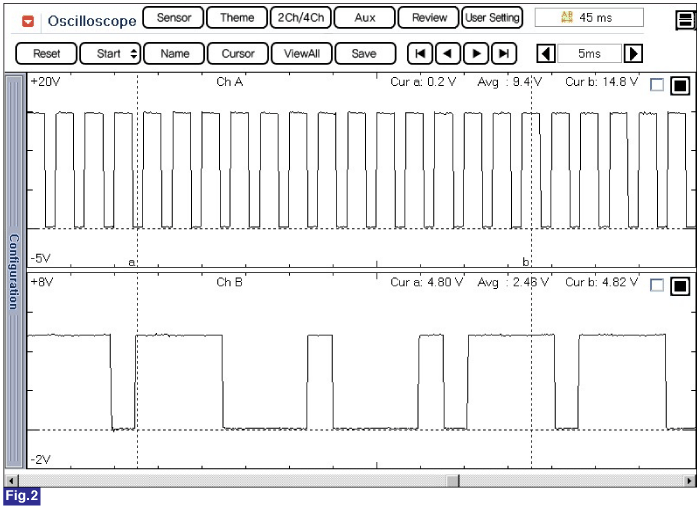

The CVVT (Continuously Variable Valve Timing) system is installed to the chain sprocket of the intake camshaft. This system controls the intake camshaft to provide the optimal valve timing for every driving condition. The ECM controls the Oil Control Valve(OCV), based on the signals output from mass air flow, throttle position and engine coolant temperature. The CVVT controller regulates the intake camshaft angle using oil pressure through the OCV. As result, the relative position between the camshaft and the crankshaft becomes optimal, and the engine torque improves, fuel economy improves, exhaust emissions decrease under overall driving conditions.
If there is a delay between the target angle and the real angle over 10 times,ECM sets DTC P0021.
Item | Detecting Condition | Possible Cause |
DTC Strategy |
•
Slow response check |
•
Poor connection
•
Contamination of Oil / Clog of Oil path
•
OCV
•
CVVT |
Enable Conditions |
•
Time after | target VVT angle –VVT angle | > 6 deg(2 sec)
•
Time after engine start > 10 ~ 60 sec
•
Coolant temperature : 0~120℃
•
Engine oil temperature : 0~130℃
•
1000 < rpm < 6600rpm | |
Threshold value |
•
Counter of delayed following target valve timing > 10 times | |
Diagnosis Time |
•
- | |
MIL On Condition |
•
2 Driving Cycles |
OCV | Specification |
Coil Resistance (Ω) | 6.7 ~ 7.7 (20℃) |


Fig.1) Normal waveform of OCV & IN-CMPS at idle.
Fig.2) Normal waveform of OCV & IN-CMPS at acceleration with load.